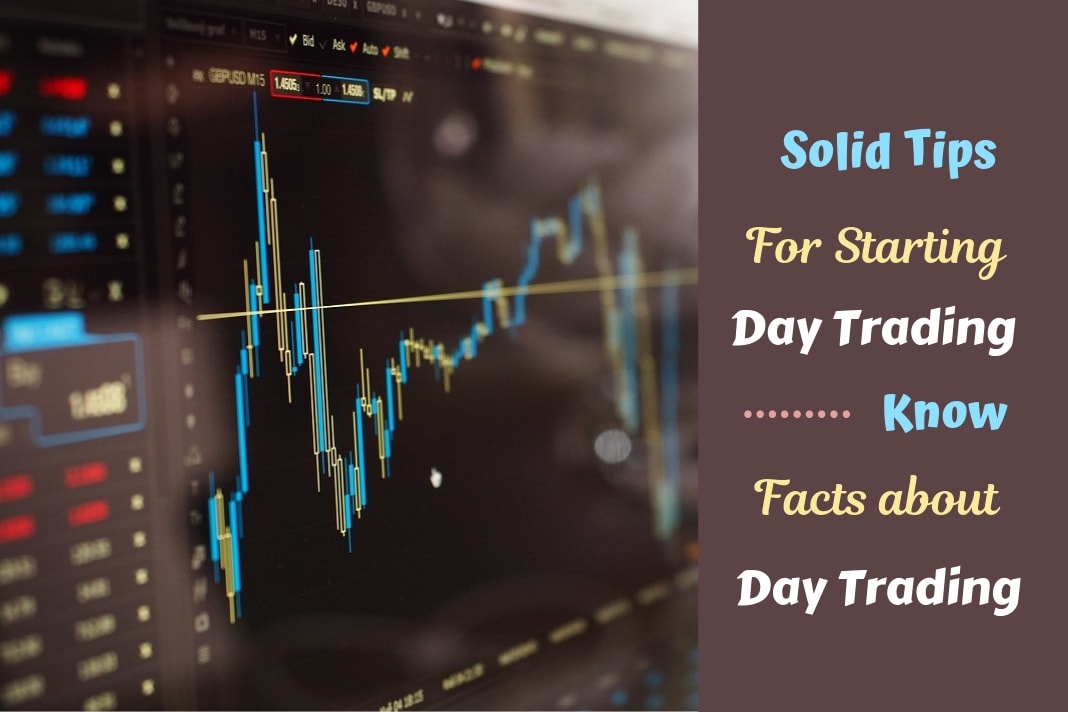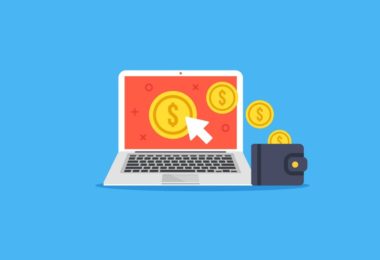
Starting any career isn’t easy; you have to do the right kind of research, learn a lot and reach out to several experts for advice. Similar to any start-up business, you need to go through and gain a lot to begin a day trading business. Day trading could be lucrative if you know to play the cards right. Day Trading basically refers to the process of buying and selling financial instruments in a single day. You can buy or sell multiple times over the course of a day.
But stock trading isn’t a cakewalk and this could turn a lot risky if you are a newbie and if you haven’t applied a well-strategized method. Therefore, we have compiled a few essential tips that will guide you in the right direction and help you set up with the right equipment, tools, and software.
So, let’s get started, shall we?
First Know Some Essential Facts and Rules about Day Trading
One of the reasons why most investors lose their money is because they lack an understanding of basic concepts in stock, currencies, futures, etc. These are simple rules and facts that many people may find trivial to read, but they can surely pose a serious threat if ignored.
What Does Day Trading Mean?
Real Day Trading means not to hold your holdings beyond the current trading day. In simple words, you are not supposed to leave any position open in the market close. Day trading is the safest way to trade stocks as you will be not exposed to the potential losses that take place when the stock market closes, which can affect the price of your positions. When trading currencies, day trading slightly differs from the rest.
Since currencies can be traded all through the day, there is no such concept as overnight trading. Many day traders hold stocks overnight because of greed or fear, thus plunging themselves into the well of catastrophic elimination of black swan or unforeseen events. However, you can have open positions for longer than a day with active stop losses in place.
Limiting Your Losses in Day Trading is Very Important
Although there is no thumb rule as to how an active trader can limit his or her losses, you can follow basic steps to steer clear from anything big. Dan Alvarez, the owner of Day Trading Tutor, Florida, gives us an example of how people don’t understand the concept of minimizing the loss. He says, “For example, a person that claims to be “day trading” buys a stock and when the stock starts dropping, he says to himself, “I am going to wait because the stock is going to go back up.”
The stock then continues to drop and he realizes that he could have sold it earlier when he was losing less. When the traditional “closing” time (4:00 PM EST) of the stock market is near, he decides that he is going to hold the stock until the next day, when it will SURELY recover. The news is released overnight which is negative for the entire market. When the market opens the next morning, all stocks are lower, including the stock of our alleged “day trader.”
Don’t Day Trade With All You Money
Make Day Trading only a small part of your money. The reason is simple: day trading is filled with uncertainty and is a risky affair. Your capital investment should be solid and should be managed accounts, fundamentally chosen for the right reasons.
Please Train and Practice before You Ride the Wagon
Day trading, like any other business, requires hard work, dedication, and effort. You have to practice a few hours a day for several days or practice on a simulator. Don’t confuse between ‘sending an order to buy’ and day trading. While both are easy, unlike sending an order to the market, day trading is not a sure thing and definitely needs mastery.
Tips for Starting Day Trading
Now that you know what forms day trading, go through these essential tips before starting a day trading.
What Will You Be Trading?
It is important for you to know what kind of financial instrument would you like to trade before you pick your broker. Apart from Stocks, you can also invest in trading futures, forex, currencies, derivatives, and options.
Newbies should pick just one and master in it before exploring more options and expanding horizons.
For a beginner, you don’t really need $25,000 top actually trade (set by Pattern Day Trader Rule). While may believe you need over $25,000 to begin this, you can start with any amount. Under $25,000 will have limited access, such as only 3 round-trip trades within a 5-day period. If you are a beginner, don’t think beyond this fruitful option.
However, if you want to be a pattern day trader, then you must have a margin account and you will be required to maintain $25,000 equity to continue trading.
[Also Read: How to Start Trading Stock Online as a Beginner]
Choose the Best Broker for You
Of course, once you’ll know what you are selling, your next step would be looking for the right broker. There will be brokers out there with great bargains and pretty fancy offers. Don’t go by them. Keep such offers aside and instead, carefully evaluate the advantages and negatives. Consider these things when evaluating a broker:
- Cost is a major factor when choosing a broker. Calculate the commission, margin rates, and other expenses, for these, are hidden costs that can eat up all your profits and certainly stagger to hundreds, if not thousand dollars.
- Technical and fundamental researches are the backbone tools for a day trader’s success. The broker you choose should have great technical skills and excellent analytical and cognitive skills.
- Make sure you go for the best charting tool and software.
- Ask your broker if they have the paper-trading option. If you are a new trader you can practice paper trading before you use your own money. It’s okay to feel nervous in the beginning; so considering this option if available is a great way to out your pressure with
- Your broker should have a top-notch broking platform that is easy to use. The execution speed should come with real-time execution and it is a must for high-frequency traders. Even a second’s delay can eat your profit and you wouldn’t want that.
- Make sure your broking firm is regulated by a booking agency and they should conform to key metrics and norms laid down by the agency.
- Find out the safety and performance of the firm, their years in this business and the stability of the broker in the market. Do not choose a brand new broker just because they have many bonuses to offer.
- Do not ignore the human element of the broking firm amidst the technical aspects. Better have a broker who is proactive, knowledgeable, patient and helpful. Look for great customer service, because it is what that will help you when something falls back when you are in the middle of a trade.
When is The Right Time to Trade
Okay, here is what you need to know, trading at the same time every day will give you more benefits than jumping from one hour to another. Typically, most successful day traders trade an hour after the stock market is open, i.e. 9:30 am to 10:30 am, and an hour before the market closes, i.e. 3 pm to 4 pm.
If you want to make the most money, these hours are the best time to trade and earn profits.
Choose the Right Stock for Trading
Instead of choosing from thousands of stock options available to you, choose one or two stocks you would like to trade and trade them all the time.
Alternatively, you can identify those stocks that are performing well on an everyday basis and then trade those. However, this practice will take a lot of your research time and you will have to set up alerts that will help you determine the stocks worth trading the next day. You will also have to refine your reading news skills.
We are repeating this, as a beginner, it is better that you stick with just one or two stocks and trade them before you become a day trader savvy.
How Much Can You Risk on Each Trade
Set an amount aside to invest in advance. We recommend you not to trade more than 1 – 2% of your account per trade. And make sure you calculate the profits and losses ahead of time to mitigate any risk.
Beginners, do not trade on margin and borrow money from brokers. Although brokers don’t allow trade on margin for free and they do charge a substantial rate as commission, it is better that you don’t get tempted until you are comfortable with the entire process, its rules, and regulation.
Finally, up to your game by enhancing your knowledge on the mechanics of day trading, such as the lingos and terminologies. There are many common ideas and terminologies of day trading that you can research in-depth and make yourself a fully-fledged expert day trader.
Our final thoughts would be, you don’t have to be a millionaire to be a day trader, pattern-day traders excludes. Day trading is a safe means to earn extra income in the stock market.




